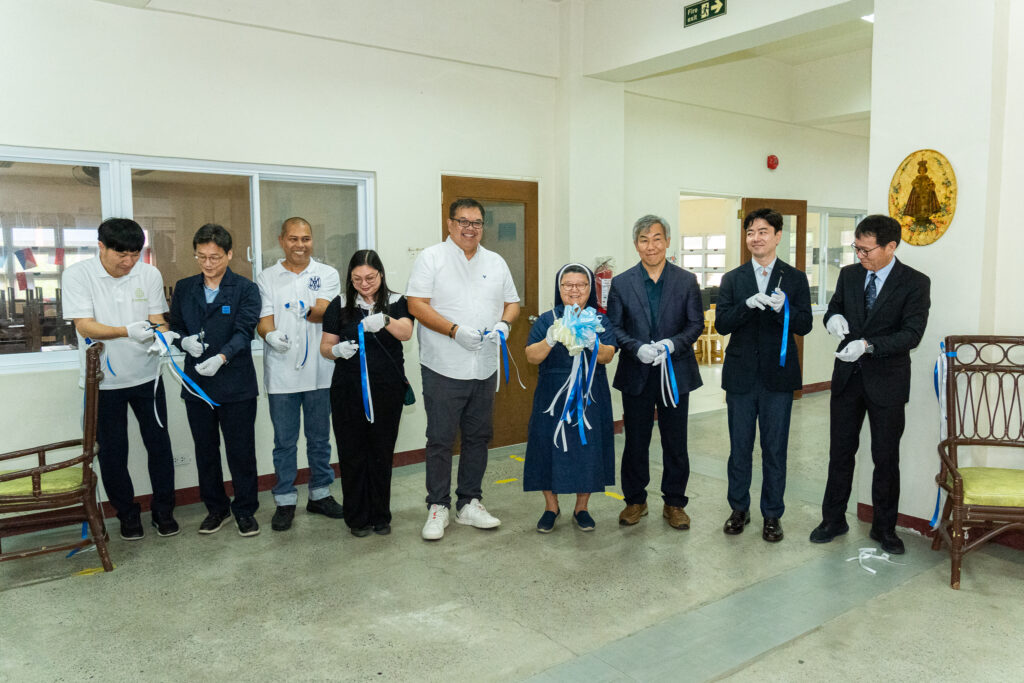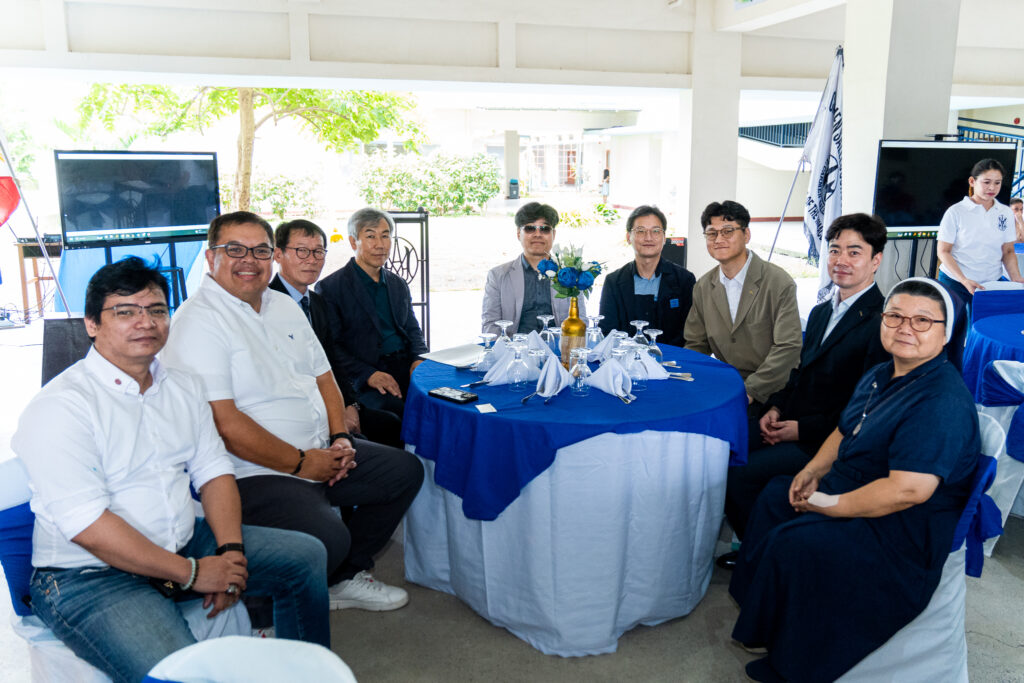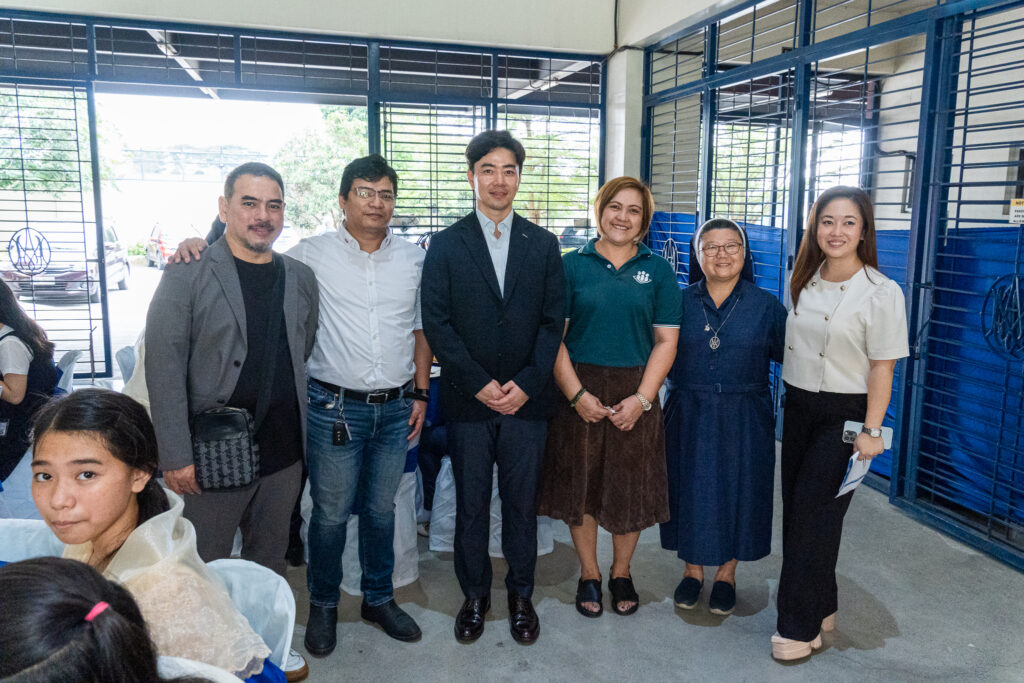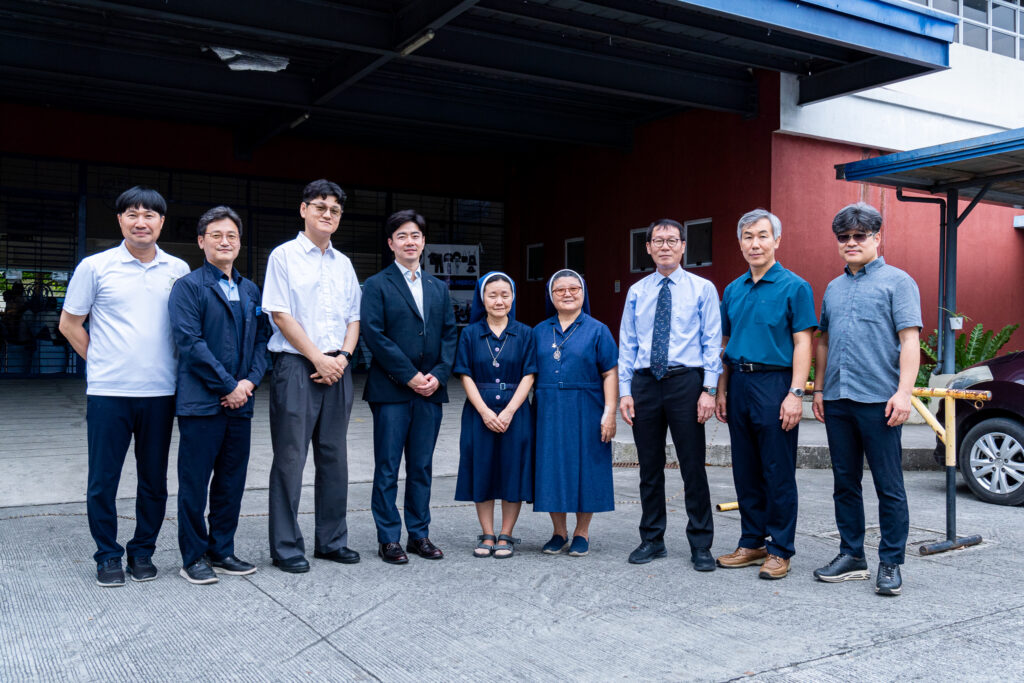Gen. Trias, Cavite – October 9, 2025 – The Hope Rail Foundation (a non-profit organization under KORAIL, Korea Railroad Corporation) has donated 85 refurbished computers, along with desks and chairs, to St. Carmen Salles School in Cavite to support the educational future of local children. The contribution, delivered during a turnover ceremony at the school’s campus in General Trias, will establish a fully equipped computer lab aimed at bridging the digital divide for students in the community. Hundreds of young learners are now poised to gain essential digital literacy skills required for success in the modern world, thanks to this international initiative.

Representatives from KORAIL and St. Carmen Salles School stand in the newly furnished computer lab during the turnover ceremony in General Trias, Cavite. The donation of refurbished computers and furniture has transformed an empty classroom into a modern technology hub for students. The initiative is part of Hope Rail Foundation’s broader mission to promote equitable access to quality education, ensuring that even underprivileged schools can offer 21st-century learning tools. “The future of our children is inextricably linked to their access to technology,” said a Hope Rail Foundation spokesperson during the event. “By providing these essential tools, we are not just giving them computers; we are investing in their potential — equipping them to compete globally and fostering a generation of innovators and leaders. We are honored to partner with St. Carmen Salles School in this endeavor.”
HOPE RAIL Foundation
This donation is part of the Hope Rail Foundation’s broader international social contribution initiative, which aims to bridge the global digital divide and provide equitable access to quality education. The refurbished equipment will outfit a brand-new computer laboratory on campus, allowing hundreds of students to develop critical digital skills and knowledge in information technology and even basic artificial intelligence applications. The project was executed in partnership with local community leaders to ensure the resources meet the specific needs of the students and school administration. Notably, the turnover ceremony became a community affair: local government officials such as General Trias Board Member Maurito Sison, national lawmakers including Senator Christopher Lawrence “Bong” Go and Representative Girlie E. Veloso of the Makasakit at Bayanihan party-list (with nominee Christian Arieta), and business leaders like Florencio D. Ayos, President of the Gen. Trias City Business Club, were in attendance. Their presence underscored broad support for the initiative across public and private sectors, highlighting a shared commitment to improving educational outcomes.
St. Carmen Salles School, Cavite
Founded in 2019, St. Carmen Salles School – Cavite is rooted in a long tradition of faith-based, transformative education established by the Missionary Sisters of the Immaculate Conception. The congregation, which originated in 1892 in Burgos, Spain, has dedicated over 133 years to holistic education of children and youth across various countries, including the Philippines (where the sisters have been active since 1986). In the Philippines, the R.C.M. has launched multiple educational and missionary endeavors, culminating in the foundation of St. Carmen Salles School in General Trias. Since its opening, the school has steadily expanded; it currently serves learners from early childhood up to intermediate grades and Junior High School program in the 2025–2026 school year, with plans for a Senior High School to follow. This growth reflects the institution’s commitment to preparing students for an increasingly complex and interconnected world. The new computer lab – made possible by the Hope Rail Foundation’s donation of eighty five computers – comes at a pivotal moment in the school’s development. It significantly enhances the school’s ICT capacity, giving students hands-on experience with modern computing resources. In an age where digital literacy often defines opportunity, this upgrade represents a direct investment in shaping globally competitive graduates who are better prepared to thrive in the future workforce.
Hope Rail Foundation and Korail’s Mission
The Hope Rail Foundation is the non-profit arm of KORAIL, South Korea’s national railway operator, and is dedicated to enriching communities through sustainable development, education, and humanitarian aid. The foundation leverages KORAIL’s corporate resources and international partnerships to execute social contribution projects that improve living standards and educational opportunities for underprivileged populations around the world. The computer donation to St. Carmen Salles School was organized as part of an international exchange program jointly funded by KORAIL and its labor union. According to KORAIL representatives, such initiatives are designed to “promote international exchange and cooperation” while uplifting the socially disadvantaged, complementing the company’s business ventures abroad. By teaming up with local stakeholders in Cavite, the foundation ensured that the project was context-sensitive and aligned with the school’s educational mission. This collaborative approach exemplifies how public-private partnerships can yield tangible benefits for communities—in this case, improving the learning environment for Filipino students through the repurposing of technology.
Korail’s Commitment to Philippine Progress

This educational uplift comes at a time when KORAIL is expanding its presence in the Philippines through major infrastructure projects. In April 2025, KORAIL signed a contract to operate and maintain Metro Rail Transit Line 7 (MRT-7) in Manila, marking the first foray of South Korea’s rail expertise into the country’s urban transit system. The MRT-7, a 23-kilometer commuter rail line with 14 stations connecting Quezon City to San Jose del Monte in Bulacan, is expected to significantly improve Metro Manila’s transportation capacity, with projections of up to 300,000 passengers daily in its first year of operation. While exporting cutting-edge railway technology and operational know-how to develop this transit line, KORAIL is simultaneously strengthening ties with local communities by providing digital devices and educational support to vulnerable groups. This dual engagement—advancing physical connectivity through railways and digital connectivity through education—underscores KORAIL’s holistic commitment to the Philippines’ progress.
Business–Community Partnership: Gen. Trias Champions Korean Rail Tech

The Gen. Trias Business Club (GTBC) is signaling strong, ground-up support for KORAIL’s future ventures in the Philippines—especially in Cavite—by mobilising local enterprise to help introduce proven Korean railway technologies to the provincial network and, eventually, to corridors nationwide. For families and daily commuters, that translates to safer stations, faster headways, and more reliable fleets. For educators, it opens doors to technical immersion and industry-linked curricula in mechatronics, signalling, rolling-stock maintenance, and station operations. And for investors, GTBC’s posture reduces adoption friction: local businesses are preparing supply chains, skills pipelines, and after-sales ecosystems ahead of deployment, shrinking ramp-up risk and improving lifecycle economics.
In practical terms, GTBC members are mapping out how Korean solutions—predictive maintenance, energy-efficient traction systems, platform screen doors, advanced ticketing and AFC (automated fare collection), and integrated operations control—can be localized for Cavite’s growth centres. The goal is not a one-off procurement but a transfer-of-know-how: local technicians trained on diagnostic software, local contractors qualified for installation and warranty work, and local colleges embedded in certification pathways. This is how a province future-proofs mobility and ensures that every peso spent on rail multiplies into durable jobs and SME opportunities.
On site, Zaphira Corporation—a homegrown Gen. Trias marketing, advertising, and public relations firm—is volunteering its expertise to make the event possible and to professionalize stakeholder engagement. Their remit spans campaign strategy, media coordination, and community listening sessions so residents, school leaders, transport cooperatives, and micro-entrepreneurs can shape the rollout. In an infrastructure category where public trust is paramount, Zaphira’s local insight helps translate technical plans into clear, community-tested messages: what upgrades are coming, when service windows open, how commuters and nearby businesses will be supported during construction, and which training and procurement opportunities are available.
Championing Collaboration and Future

For families and educators, the newly donated computer lab represents a leap forward in teaching and learning, opening doors for students to explore coding, research, and creative projects that were previously out of reach. It is an investment in human capital that will enrich the curriculum and inspire young minds. For the broader community and prospective investors, the initiative signals the positive impact of socially responsible investment: global companies like KORAIL are not only bringing in infrastructure and technology projects, but are also investing in the people who will use and benefit from these advancements. The partnership between St. Carmen Salles School, Korea Hope Foundation, and the Hope Rail Foundation demonstrates how aligning corporate social responsibility with local educational needs can create shared value. As the computer screens flicker to life in Cavite’s new lab and the MRT-7 project moves closer to reality, one message is clear – connecting communities, whether through rail lines or digital networks, is key to building a more inclusive and prosperous future for the Philippines.
Sources: Hope Rail Foundation Press Release; KORAIL Official Announcement; Financial News report en.fnnews.comen.fnnews.com; BusinessWorld report on MRT-7bworldonline.com.


Leave a Comment